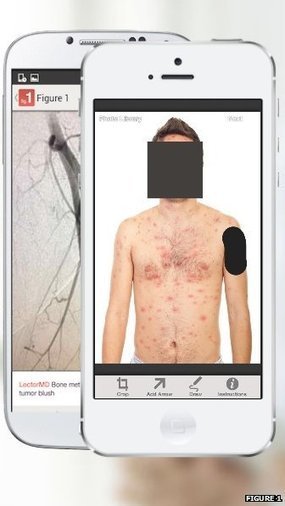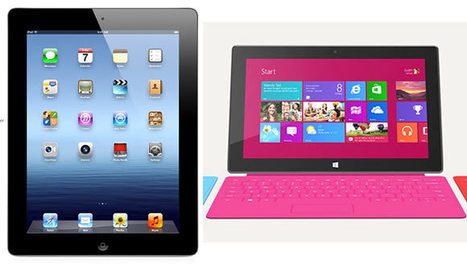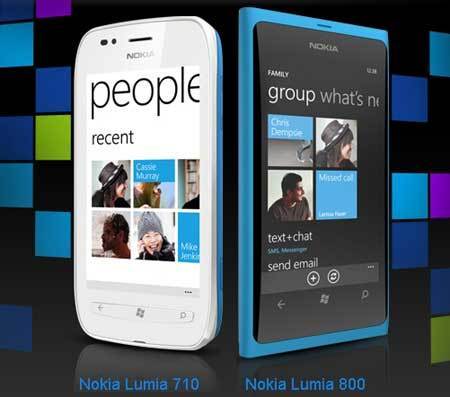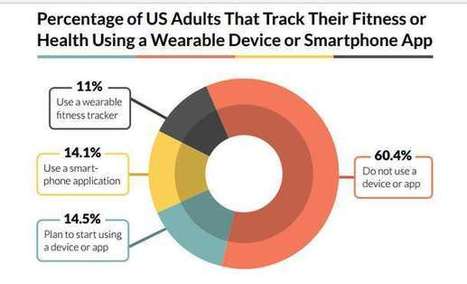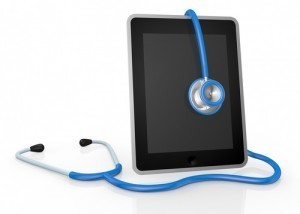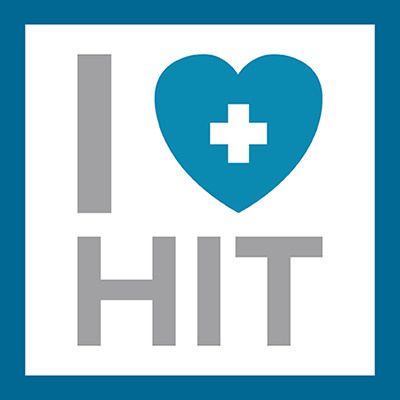 Your new post is loading...
 Your new post is loading...

|
Scooped by
nrip
|
An app which enables healthcare professionals to share photos is to be rolled out across western Europe by the end of the year. The app was designed to enable doctors to share pictures of their patients, both with each other and with medical students.
So far, more than 150,000 doctors have uploaded case photos with the patient's identity obscured.
However, some experts have expressed concern about patient confidentiality.
Patients' faces are automatically obscured by the app but users must manually block identifying marks like tattoos.
Each photo is reviewed by moderators before it is added to the database.
more at: http://www.bbc.com/news/technology-29521986

|
Scooped by
nrip
|
Who knew the loud dot matrix printers of the 1980s, complete with their perforated-edge paper, would give way to sleek 3D printers that can create items ranging from weapons to medical equipment? Let’s take a look at how 3D printing works and how far the technology has come since its recent inception.

|
Scooped by
nrip
|
While smartphones still beat tablets in numbers and frequency of use, physicians generally prefer to do their reading and research on the bigger screen.
Tablets are taking over as a tool of choice for physicians, says a survey by Kantar Media, with just over half of medical professionals using the hand-held computers to read up on the latest journal articles, conduct research on patient care, and email with colleagues.
51% of physicians say they use a tablet during their daily work, while nearly the same amount also use the device for personal tasks.
The survey of more than 3000 physicians found that nearly a third of respondents use tablets to read up on medical publications and 16% watch webcasts or listen to podcasts on professional topics using their tablets which have been making their way into hospitals and offices at a steady pace, through patient-oriented telehealth pilots and monitoring programs intended to engage patients and give providers an edge over chronic diseases
“As physicians continue to shift their work-related tasks to mobile devices, they must overcome technological hurdles challenging them from completing some of their most important tasks, namely interacting with EHRs and recording clinical notes.” An unrelated CDW survey adds that physicians can gain more than an hour of productivity by using tablets to help them multitask, with 84% of physicians saying that the devices make them more efficient and happier doing necessary paperwork.

|
Scooped by
nrip
|

|
Scooped by
nrip
|
While much is made of the mHealth app market for consumers, a growing segment is being tailored for clinicians. Doctors are becoming as mobile as their patients, and they need the tools to access medical information as well.
Vendors are already moving in that direction, too. Take Orca Health, for instance, which has developed a platform of iOS 7 apps designed to help clinicians educate patients about certain conditions or medical procedures. The Patient Education for Healthcare Professionals platform, which currently features 10 apps, allows physicians to choose and edit medical content, capture photos and videos and securely send that information to the patient — in essence, enabling the physician to prescribe an app.
"Patient education is a monster, monster problem," said Matt Berry, Orca Health's founder and CEO, in an interview with mHealth News. Berry said the Orca Health apps (the company also has a line of iBooks through a partnership with Harvard Medical School) enable clinicians to personalize patient education, rather than relying on generic handouts. The physician sends the patient an e-mail with a link to a HIPAA-compliant web portal, where the patient can create a secure account and view that information. Subsequent prescriptions — videos, photos, links to information, histories of medical encounters and resolutions — can be added to the patient profile by the physician.
Apps currently available in the Apple App Store are Spine Decide, Knee Decide, Heart Decide, Eye Decide, Shoulder Decide, Foot Decide, Hand Decide, Dental Decide and Ear, Nose and Throat Decide (a Kids dental app is available for the Apple iPad).
Company officials said physicians using the Orca Health platform have improved patient retention rates by as much as 15 percent.
"Physicians are asking for these tools," Berry said. "They want to be able to prescribe that content for their patients."
|

|
Scooped by
nrip
|
Late last month, TechnologyAdvice released an interesting study looking at whether most people want to use health wearables such as fitness trackers and other tools for health purposes.
Here are the top-line results of this study:
- 75 percent of U.S. adults do not track their weight, diet, or exercise using a health tracking apps or devices
- 43.7 percent had no specific reason for not tracking their fitness
- 27.2 percent won’t use these devices due to lack of interest - 25.1 percent of adults are currently using either a fitness tracker or a smartphone app to monitor their health, weight, or exercise.
This sounds like pretty bad news for those who believe the era of health wearables is here. But, this study also raises another question: Are health wearables evangelists fools?
Fard Johnmar, Founder of Enspektos explains why relevancy is the key to boosting the adoption of health wearables.
Read more at http://hitconsultant.net/2014/10/08/are-health-wearables-evangelists-fools/

|
Scooped by
nrip
|
Industry observers like myself have often painted the competitive mHealth landscape with a brush that wages computer manufacturer Dell and software behemoth Microsoft versus Apple--the reigning mobile healthcare champion. However, the real battle for the heart, mind and soul of the still-emerging mHealth market places Apple and search engine giant Google squarely in the commercial trenches.
Apple's iPhone and iPad have set the standard for other mobile devices in healthcare. Doctors, in particular, simply love their iPhones and iPads. But, now, the mHealth war between Apple and Google appears to be entering a new battlefield, namely wearable devices.
At the center of Apple's efforts in this area is its long-awaited iWatch, a wristwatch-like computing device with smartphone/tablet and health/activity tracking capabilities. Reportedly, iWatch includes a pedometer for counting steps and sensors for monitoring health-related data such as heart rate.
Apple is growing its team of medical sensor specialists by hiring some of the world's premiere experts in mobile medical technologies. Presumably, this expertise will be heavily leveraged by Apple in their development of the iWatch or some other device.
Simultaneously, Google has been working on its much-heralded Google Glass, high-tech glasses which contain a heads-up display, camera and a microphone, and can ostensibly support mobile health apps directly on the device. Google Glass, developed by the company's secretive Google X lab, has strong potential for healthcare, particularly in the ER where physicians could use the glasses to scroll through lab and radiology results and in the OR providing surgeons with hands-free access to critical clinical information.
In addition, earlier this month, Google unveiled its contact lenses, which use a tiny sensor and wireless transmitter, to monitor and measure glucose levels in tears, potentially replacing the self-administered blood tests from finger pricks that diabetics must endure on a daily basis. Not surprisingly, Google employees recently met with U.S. Food and Drug Administration officials at FDA headquarters who regulate eye devices.
Who will be first to market with these wearable devices--Apple or Google--remains to be seen. What is certain, however, is that the two technology leaders with track records for building strong brands will no doubt dazzle the marketplace with innovative, leading-edge products that put sensor-based devices in the hands of consumers and medical professionals. That kind of competition in mHealth can only serve to benefit us all as this nascent industry moves forward
More at http://www.fiercemobilehealthcare.com/story/apple-vs-google-mhealth-face/2014-01-27

|
Scooped by
nrip
|
With an eye on improving healthcare quality and efficiency, the U.S. Department of Health & Human Services and the U.K.'s National Health Service will share health IT information and tools with one another after signing an agreement Thursday at the Office of the National Coordinator for Health IT's annual meeting in Washington, D.C.
HHS Secretary Kathleen Sebelius and her British counterpart Jeremy Hunt signed the memorandum of understanding, the latter of whom was broadcast via a live feed from the U.K. The agreement focuses on four key areas, according to an HHS announcement, including:
- Sharing quality indicators: The collaboration now is identifying alignments across existing British and American repositories to identify best practices in the design and use of quality indicators. Future work will include mutually leveraging technical experts and data, and working on a standardized approach to quality indicator development.
- Liberating data and putting it to work: HHS and NHS will discuss and find areas of collaboration around open data and safe and secure data transparency of secondary stored data, as well as interoperability standards for improvement of data sharing and clinical care with a focus on patients accessing and sharing data.
- Adopting digital health record systems: Both organizations will work to maximize successful adoption of digital records across the health care spectrum and support the development of a robust health IT workforce.
- Priming the health IT market: Both organizations will work to support the Health IT Marketplace by identifying barriers to innovation, sharing individual certification approaches for patients and clinician-facing applications, and strategies to support small and medium enterprises/start-ups
more at http://www.fiercehealthit.com/story/us-uk-collaborate-health-it-sharing-initiative/2014-01-24

|
Scooped by
nrip
|
Implications of integrating technology:
Under increasing pressure to keep costs down, providers should promote technologies that help manage patients’ health outside of costly care settings.
Shouldering more of their medical costs, health-conscious consumers may be more willing to pay for mobile and other technologies to help manage their health.
Drug and device companies must understand consumer behavior and satisfaction in the social media era.
Reimbursing non-traditional, mobile-enabled therapies may allow insurers to reduce medical costs.

|
Scooped by
nrip
|
Here are five significant trends healthcare CIOs should pay attention to in 2014, partly because of their bearing on the main events.
Patient portals, Direct messaging, medical identity theft, cloud storage, and mobile devices will keep healthcare execs busy.
1. Patient portals
Because of rising consumer interest in health IT, the industry transition to accountable care, and most of all, Meaningful Use Stage 2, patient portals are hot. Nearly 50% of hospitals and 40% of ambulatory practices already provide patient portals, according to a Frost & Sullivan report. The firm predicted that the value of the portal business would soar to nearly $900 million in 2017, up 221% from its worth in 2012.
2. Direct messaging
In the past few years, the Direct Project protocol for secure clinical messaging has steadily gained momentum. EHRs must include Direct capability to receive 2014 certification, and Direct messaging is also one way to satisfy the Meaningful Use Stage 2 requirement that providers exchange care summaries electronically at transitions of care. Some health information exchanges are using Direct to communicate with physicians who don't have EHRs. Eventually, Direct messages could replace faxes.
3. Cyberattacks and medical identity theft
Over the past few years, there has been a quantum leap in the number of cyberattacks on healthcare organizations. The Ponemon Institute, which tracks computer security in a number of industries, says healthcare is increasingly attractive to cyber-criminals because the information required to steal a medical identity is worth far more on the street than Social Security numbers or credit card numbers alone. As a result, Ponemon reported, the number of medical identity theft victims in the US soared from 1.42 million in 2010 to 1.85 million in 2012.
4. Cloud storage and cloud-based EHRs
Security concerns were the biggest reason CIOs and other healthcare leaders said they were reluctant to use cloud storage in an HIMSS Analytics focus group. Some participants said they'd be comfortable using a private cloud hosted by their software vendor. Others said the cloud was fine for business-related information, but that they wouldn't trust it for storing personal health information.
5. Mobile devices
BYOD is a major concern for CIOs, as is insecure texting between clinicians, and those issues will continue. But 2014 could be the year when physicians start prescribing mobile health apps to patients. If there's a major increase in the use of these apps by patients with chronic diseases, monitoring data from patients' mobile devices might also start flowing into hospitals and practices.
more at http://www.informationweek.com/healthcare/mobile-and-wireless/5-trends-for-health-cios-in-2014/d/d-id/1113133
|



 Your new post is loading...
Your new post is loading...

